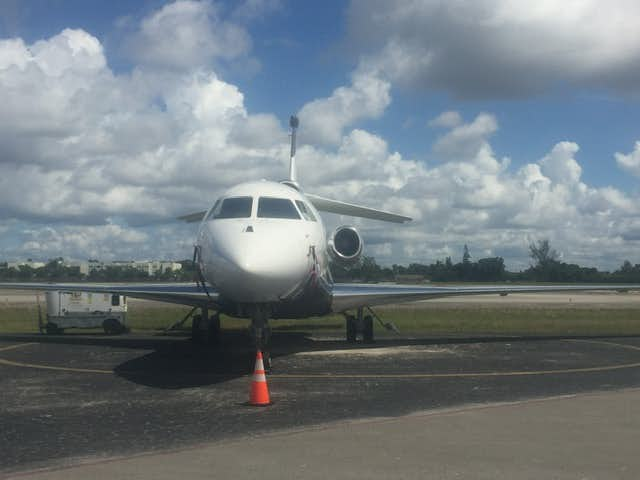
The National Business Aviation Association in a letter to Congress is highlighting private aviation’s role as a lifeline to small communities and for emergency relief.

The National Business Aviation Association and several industry groups are urging Congress to preserve general aviation’s contribution to the economy. The move comes as the government considers a relief package to support the country during the COVID-19 pandemic.
With the majority of business aviation air carriers being private companies, their access to capital is more constrained. In the current environment, private equity markets are not able to provide financing, eliminating an important source of liquidity for the industry.”
Letter to Congressional leaders from Private Aviation trade groups
In a press statement, NBAA highlighted, “General aviation is crucial to the country’s transportation network, serving as a lifeline for many communities, and Part 135 operators conducting almost all air ambulance flights in the U.S.”
It added, the private aviation community supports 1.2 million jobs and $247 billion in economic impact.
The groups say economic pressures caused by the pandemic may threaten the survival of private aircraft operators without financial assistance. The appeal was made in a letter sent to Congress yesterday.
The letter was addressed to the leaders of both houses, Nancy Pelosi, Mitch McConnell, Kevin McCarthy, and Charles Schumer.
“As you consider a potential relief package for FAR Part 121 air carriers, we request that those same programs be made available for companies conducting operations under FAR Parts 135 and 91 subpart K (fractional operators). Programs that would provide the most support to our industry include medium to long-term liquidity assistance and relief from air transportation excise taxes,” the letter states.
It continues, “With the majority of business aviation air carriers being private companies, their access to capital is more constrained. In the current environment, private equity markets are not able to provide financing, eliminating an important source of liquidity for the industry.”
The group pointed out, “With scheduled airlines serving only 10% of our nation’s 5,000 airports, air carriers that provide charter services under Part 135 of the Federal Aviation Regulations, and fractional providers operating under Part 91 subpart K provide connectivity to thousands of communities with no other air service.”
It also underscored, “Part 135 operators conduct almost all air ambulance flights and are a critical part of the network to deliver organs for transplant. Without both near and medium to longterm relief, many of these air carriers will not survive, resulting in job losses and significant disruptions to the critical services that they provide every day.”
The letter states domestic travel restrictions and locally imposed travel restrictions might cause even more significant harm to these companies.
“The business aviation industry is resilient and has a proven track record of providing humanitarian assistance during times of need,” according to the letter. “However, the air carriers within our industry are facing unprecedented challenges, and we appreciate your consideration of our requests. We look forward to being engaged in discussions on a potential relief package for all air carriers and thank you for your leadership.”
In addition to NBAA President and CEO Ed Bolen, the letter was signed by Aircraft Owners and Pilots Association (AOPA) President Mark Baker, Experimental Aircraft Association (EAA) CEO and Chairman of the Board Jack Pelton, General Aviation Manufacturers Association (GAMA) President and CEO Pete Bunce, Helicopter Association International (HAI) CEO James Viola and National Air Transportation Association (NATA) President and CEO Tim Obitts.